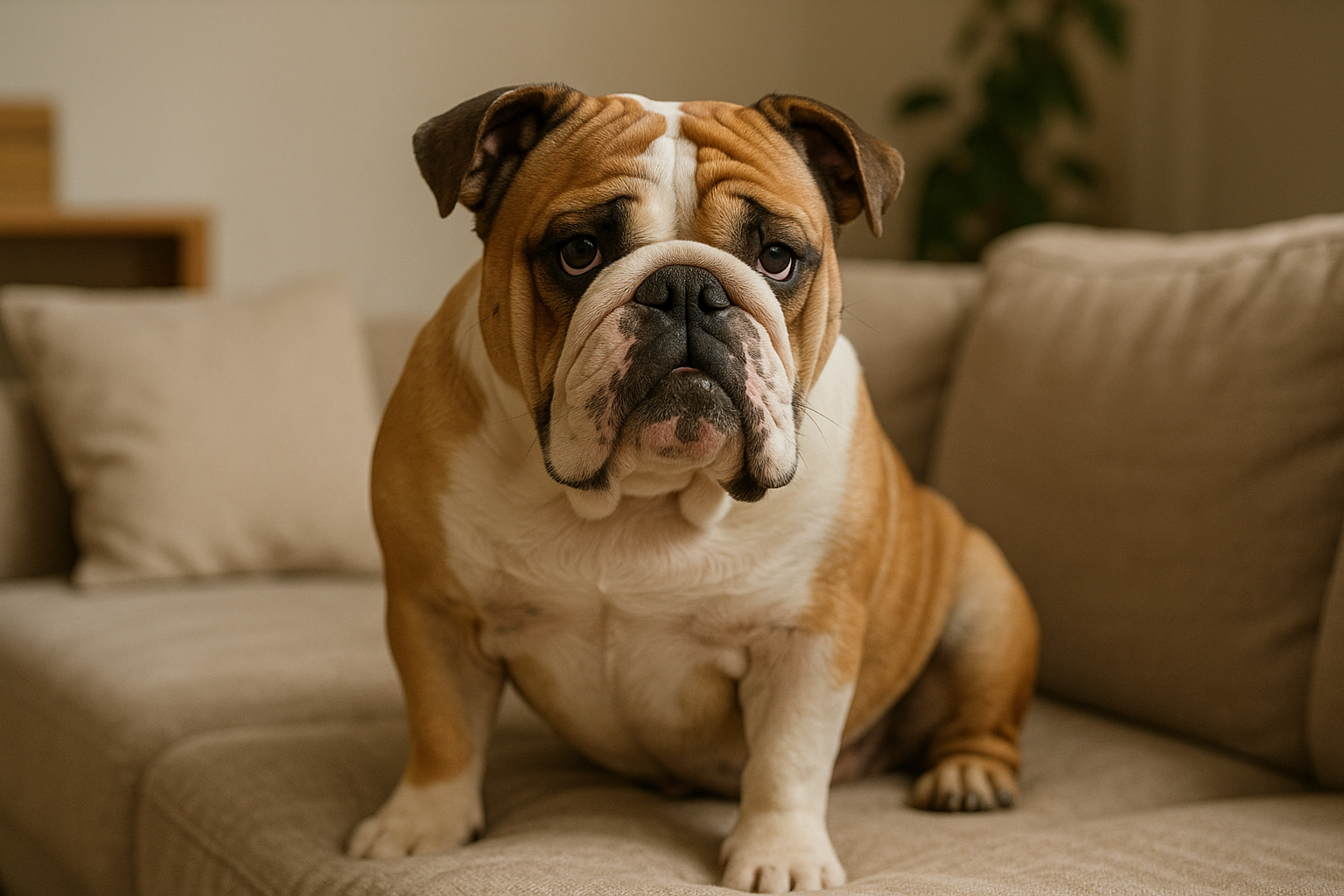Owning a bulldog is a joyful and deeply rewarding experience. With their affectionate temperament, loyal personality, and charming appearance, bulldogs quickly become beloved family members. However, this breed is not like others. Bulldogs have unique physical traits, health concerns, and behavioral tendencies that require special attention. Unfortunately, many owners—especially first-time guardians—make mistakes that, although often unintentional, can compromise their dog’s quality of life. By recognizing these mistakes and making adjustments, you can give your bulldog the best chance at living a long, healthy, and happy life.
One of the most common mistakes bulldog owners make is neglecting to clean the facial folds. Those adorable wrinkles are part of the breed’s charm, but they can also trap food, saliva, dirt, and moisture. Left uncleaned, these folds quickly become a breeding ground for bacteria and yeast, leading to redness, itching, bad odors, and painful infections. Some owners mistakenly believe that wiping their bulldog only during baths is enough, but wrinkle care is a daily necessity. A simple routine of gently wiping and thoroughly drying the folds can prevent serious skin problems and keep your dog comfortable.
Another frequent and potentially dangerous mistake is exposing bulldogs to excessive heat. Bulldogs are brachycephalic, meaning they have flat faces and shorter airways. While this gives them their iconic look, it also means they cannot regulate body temperature as effectively as other breeds. Something as simple as a midday walk in the sun can become dangerous. Leaving a bulldog in a parked car, even for a few minutes, can be fatal. Owners must learn to adapt routines to the weather, scheduling walks early in the morning or late in the evening, providing shade, and always keeping fresh water nearby.
Overfeeding is another mistake that happens far too often. Bulldogs are persuasive beggars with expressive faces that make it hard for owners to say no. Many give in and offer table scraps, fatty foods, or oversized portions of kibble. Unfortunately, bulldogs are highly prone to obesity, which in turn worsens respiratory problems, stresses the joints, and increases the risk of heart disease. A balanced diet with measured portions, combined with healthy treats in moderation, is essential for maintaining their health. Consulting a veterinarian about the right diet can make a significant difference.
A related issue is encouraging a sedentary lifestyle. Because bulldogs are calm and not naturally energetic, some owners assume they don’t need regular exercise. While bulldogs do not require marathon runs, they do need daily activity to stay healthy. Without enough movement, they are at higher risk for obesity, joint stiffness, boredom, and destructive behavior. Short, gentle walks combined with interactive games and mental stimulation, such as puzzle toys or scent-based activities, are ideal ways to keep them active without overexertion.
Skipping regular veterinary checkups is another mistake that can shorten a bulldog’s life. Many owners only visit the vet when a problem becomes obvious, but bulldogs are prone to several health conditions that are best managed when detected early. Hip dysplasia, heart issues, respiratory problems, skin infections, and allergies are all common in the breed. Preventive care, such as routine exams, vaccinations, parasite control, and dental checkups, helps catch problems before they become severe and ensures a healthier life overall.
A lack of socialization is also a frequent oversight. Bulldogs are naturally calm, but that does not mean they should be isolated. Puppies need to be introduced to different people, dogs, sounds, and environments in positive ways. Without early socialization, bulldogs may develop fear, anxiety, or territorial behaviors as adults. Structured playdates, trips to safe environments, and exposure to new experiences help create a confident and well-adjusted dog.
Basic training is another area where bulldog owners often fall short. Some assume that bulldogs don’t need much training because they are gentle by nature, but this can lead to difficulties later. Bulldogs can be stubborn, and without clear guidance, they may ignore commands or develop unwanted habits. Teaching simple commands like sit, stay, come, and walking politely on a leash improves communication, strengthens the bond between owner and dog, and ensures safety in everyday situations.
Ignoring subtle signs of discomfort or illness is another mistake. Bulldogs often hide pain well, and their calm demeanor can trick owners into thinking everything is fine. Changes in appetite, irritability, lethargy, excessive panting, or sudden avoidance of activity may be early indicators of a health issue. Knowing your bulldog’s normal behavior and being attentive to changes allows you to act quickly before problems worsen.
Some owners, influenced by social media, make the mistake of focusing too much on their bulldog’s appearance. Dressing them in uncomfortable clothes, forcing them into stressful photo sessions, or prioritizing looks over health can cause unnecessary stress. Bulldogs only need clothing in specific situations, such as during cold weather or if they have sensitive skin. What truly matters to them is comfort, affection, and quality time with their humans.
Perhaps one of the most significant mistakes is adopting or buying a bulldog without researching the breed thoroughly. Bulldogs are not low-maintenance pets. They require regular cleaning, special attention in hot or cold weather, consistent vet care, and financial resources to manage potential health issues. Some people choose bulldogs purely for their appearance, only to feel overwhelmed later by the responsibilities. This lack of preparation sometimes leads to neglect, frustration, or abandonment. Understanding the breed’s needs before bringing one home is the best way to prevent such problems.
In summary, the most common mistakes bulldog owners make are often rooted in lack of knowledge, underestimating the breed’s needs, or treating them more like accessories than living beings. From forgetting to clean their wrinkles to overfeeding, skipping exercise, or ignoring health checkups, each mistake can have lasting consequences. The good news is that all of these issues are preventable with the right information, patience, and love. By making small changes to your daily routine and staying attentive to your bulldog’s unique requirements, you can ensure they live a long, comfortable, and fulfilling life.
